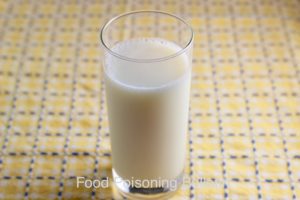Last week the Montana state Senate killed a bill that would have legalized raw milk sales. HB 574 would have allowed farmers with small herds to sell raw milk directly to consumers. Currently, it’s illegal to sell unpasteurized milk in that state.
 The Montana House passed the bill last month with a vote of 96-3. However, the Agriculture Committee in the Senate made big changes to the bill. The raw milk would have had to meet the “Grade A” standards and consumers would have had to participate in a cow share plan. Most importantly, anyone sickened by the raw milk could not hold the state liable for costs of their illness.
The Montana House passed the bill last month with a vote of 96-3. However, the Agriculture Committee in the Senate made big changes to the bill. The raw milk would have had to meet the “Grade A” standards and consumers would have had to participate in a cow share plan. Most importantly, anyone sickened by the raw milk could not hold the state liable for costs of their illness.
That last change meant the bill had to pass by a 2/3 majority in both the House and the Senate, required whenever a law includes anything about government liability. It failed by one vote. The Legislature is set to adjourn on April 27, 2013, so another bill will most likely not be introduced this session. The Montana Department of Livestock opposed the bill, stating that raw milk is a public health risk.





I, certainly, would never drink raw milk. But, I’m sure that people will continue to drink raw milk regardless of the health risks, so it seems that if they are willing to take these risks then others should not have to pay for the cost of their illnesses.
That sounds like a good idea, but society is so interwoven it’s impossible. First, people give their children raw milk, and those kids don’t have a choice. Outbreaks from raw milk disproportionately affect children. Second, anyone who is sick with salmonellosis, a Campylobacter infection, etc. can pass that infection along to other people. Third, the cost of outbreak investigations by public health officials is usually at least ten to twenty thousand dollars, and that burden is borne by the taxpayers. Finally, any medical bills that aren’t paid are spread among the rest of us, which raises the cost of medical care for everyone. A hospital bill for a single E. coli O157:H7 infection that results in HUS can reach $6,000,000.00.